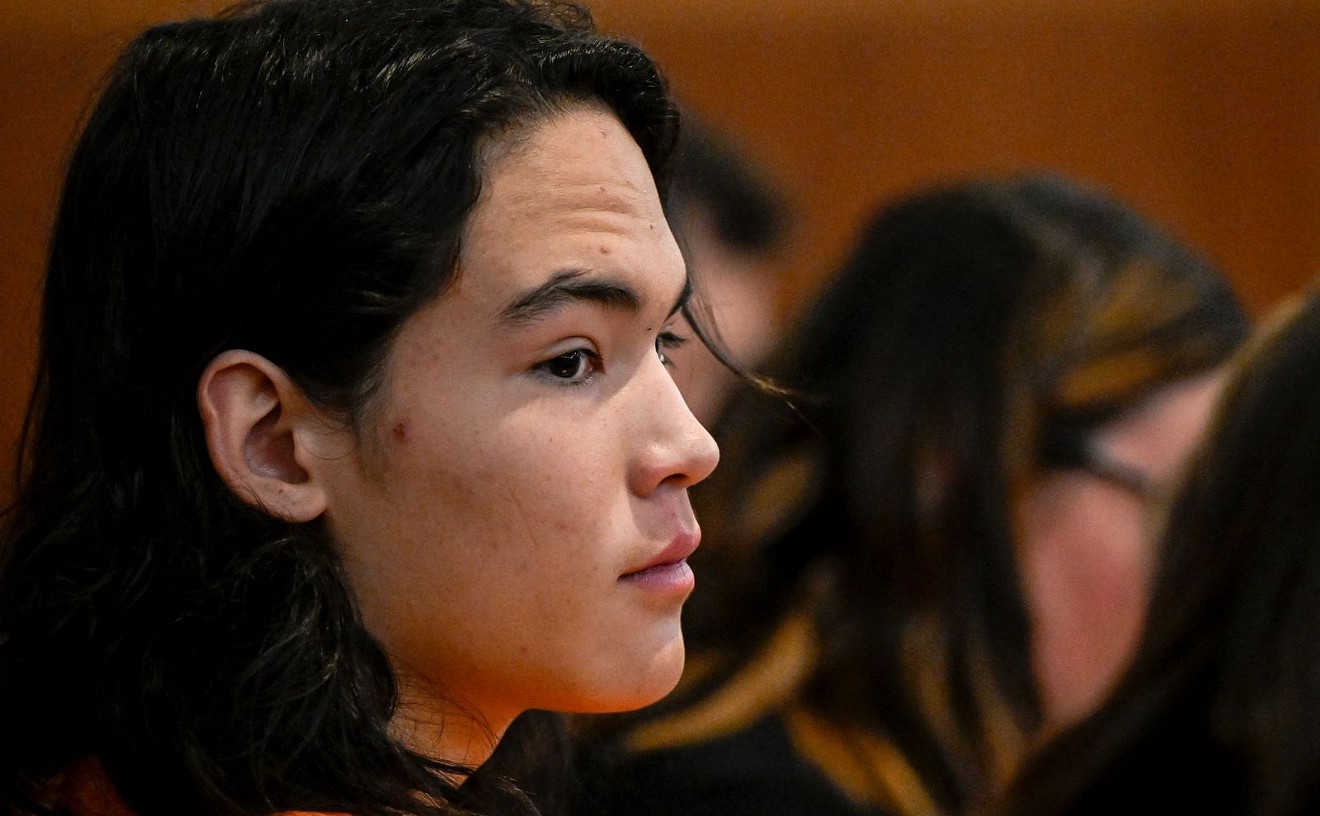The inaugural Comic Con was such a hit that we were sure there would be a second one, though, and this time, we were ready.
In April, we announced our first Comics competition; the only requirement was that entries had to deal with life in the Mile High City.
There's a lot to love (and sometimes loathe) in Denver -- and the incredible amount of creative talent is certainly one of this city's features that deserves a lot of love. For proof, see the eight winners of our Comics contest here (and watch for more entries on our Show and Tell blog).
The comic-art scene is particularly strong here, in part because of a couple of legendary comics stores. I got a reminder of the impact these businesses have had on Colorado's creative types last year, when I was at the Denver Bicycle Cafe to meet with Jamie Laurie and Stephen Brackett of Flobots, and ran into longtime Westword contributor Jason Heller at the bar. Turns out, Heller had worked at the comic-book store that Laurie and Brackett had frequented when they were grade-school pals -- and they greeted Heller like a hero. A superhero.
For Heller's part, he noted that the musicians were a foot taller than when he'd last seen them. "Jamie and Stephen were such great little dudes," Heller says of the future Flobots. "Total fucking dorks. And for me to think of them that way at the time, well, that's saying something. But they were so enthusiastic about comics, it just made my day every time they came in. And I'm not just saying that because they grew up to be dictators of small island nations."
That might be a slight exaggeration, but Flobots rule. The act is on a tour right now, but yesterday I reached out to Heller to reminisce about this run-in, and also to talk about what comics mean to kids -- both actual kids, and kids who never grow up. His smart, stylish response provided plenty of food for thought (and, for me, regret -- since he's so busy writing books now that he has little time for us).
Here's Jason Heller on comics:
When I was a kid, comic books were a great source of anxiety for me. Not because of their content, but because I used to shoplift shitloads of them from Safeway every week. Me and my friend Jeff used to head straight to the old-fashioned spinner rack after school and stuff as many down our pants as we could: X-Men, Alpha Flight, Teen Titans. I was too young to have a job and too poor to have an allowance, so I guess it's a testament to how much I loved comics that I risked my very freedom -- they jail children for stealing comics, right? -- just to be able to keep up with my favorite titles. I didn't care about my collection, per se; I just had to know what would happen next. That's the addictive nature of superhero comics: the ongoing serialization that constantly adds to a vast, collective mythos. I couldn't get enough. I need to be part of it. Or at least party to it.This town is full of superheroes -- Jason Heller, Stephen Brackett and Jamie Laurie chief among them.I guess it's ironic that I wound up managing a comic-book store almost immediately after reaching legal adulthood. By that time, alternative comics and graphics novels were on the rise, and I absorbed it all. I'll never stop loving the whole capes-and-tights tradition, but my idea of what a hero could be grew exponentially: from Belgian boy adventurers like Herge's Tintin to Seattleite misanthropes like Peter Bagge's Buddy Bradley. I also realized that comics didn't have to be about heroes at all (anti- or otherwise). From poignant autobiography to filthy fantasy, the sky was the limit; comic books were not a genre, but a blank slate. And that's what they mean to me now: nothing. And by that I mean everything.
More from the Calhoun: Wake-Up Call archive: "The new Flobots album, Circle in the Square, celebrates worlds big and small."











